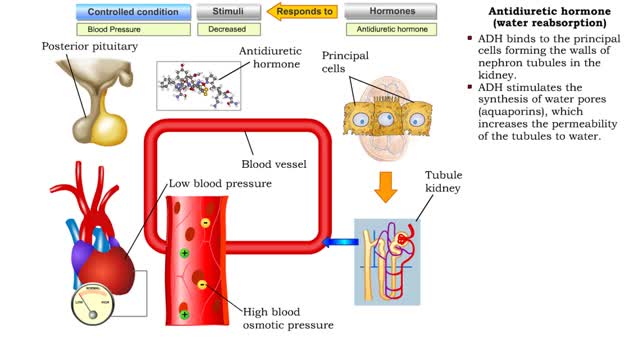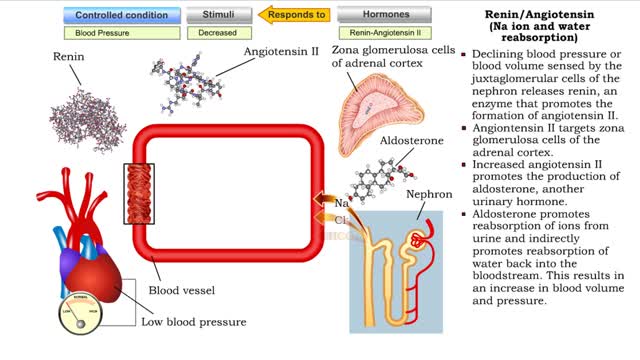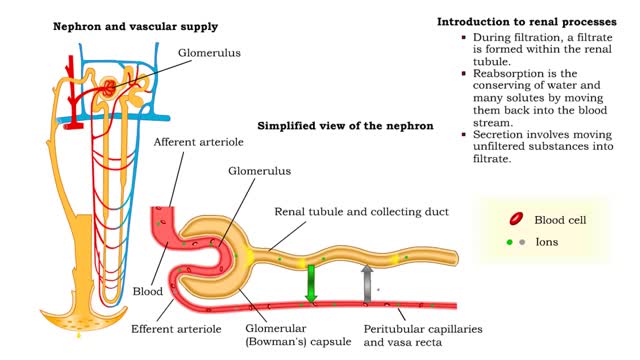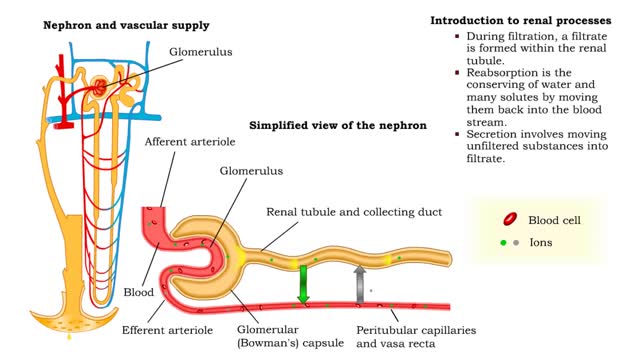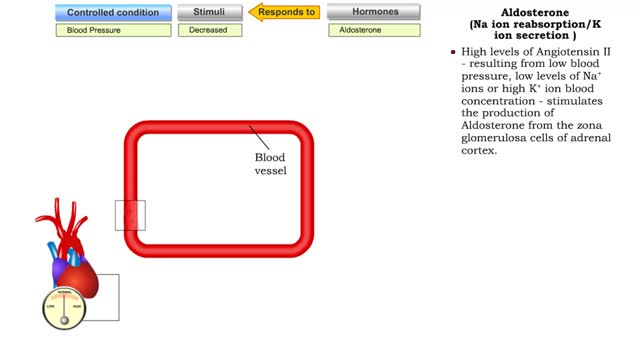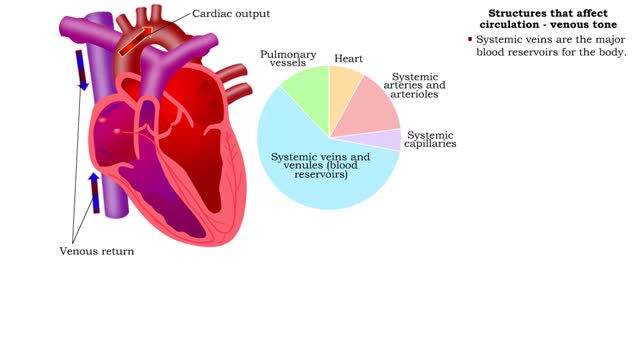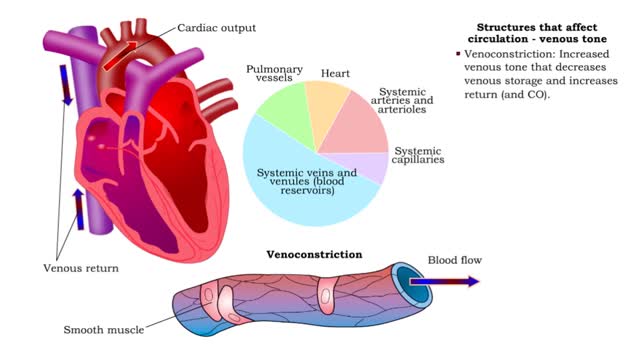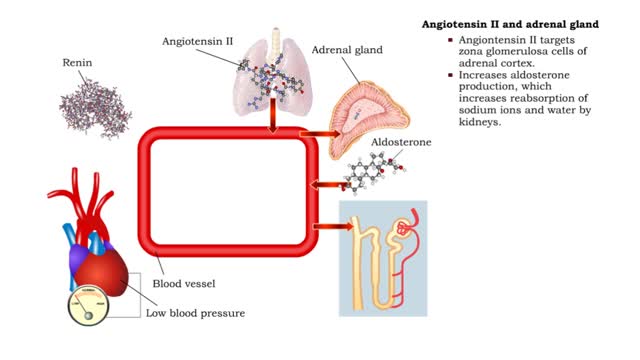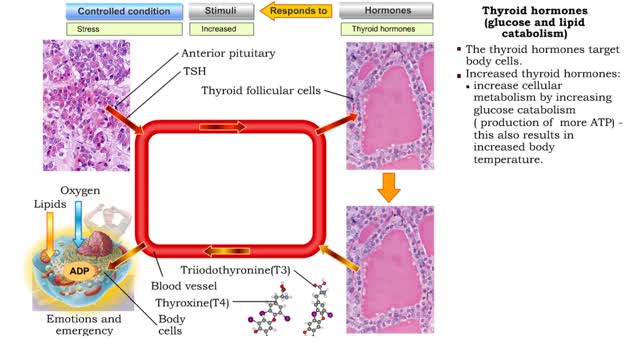Search Results
Results for: 'water reabsorption'
Antidiuretic hormone (vasoconstriction, water reabsorption & sweat inhibition)
By: HWC, Views: 10891
• Dehydration, blood loss, and low amounts of water in the blood can cause blood volume and pressure to decrease. • Neurosecretoxy cells in the posterior pituitary release antidiuretic hormone(ADH). • ADH binds to smooth muscle cells in blood vessel walls, stimulating them to vasoconstr...
Renin/Angiotensin (water gain from urine & Na ion and water reabsorption)
By: HWC, Views: 11010
• Sensing declining blood pressure or blood volume, juxtaglomerular cells of the nephron release renin, an enzyme that promotes the formation of angiotensin II. • Angiotensin II targets smooth muscle cells in blood vessels that provide blood to the nephron. • Angiotensin II causes thes...
Carbohydrate Metabolism: Introduction to renal processes and filtrate formation and composition
By: HWC, Views: 11189
• At the nephron, the three process responsible for the formation of urine include: • Glomerular filtration. • Tubular reabsorption. • Tubular secretion. • During filtration, a filtrate is formed within the renal tubule. • Reabsorption is the conserving of water and many s...
Introduction to filtration - filtrate formation and composition
By: HWC, Views: 11177
• At the nephron, the three process responsible for the formation of urine include: • Glomerular filtration. • Tubular reabsorption. • Tubular secretion. • During filtration, a filtrate is formed within the renal tubule. • Reabsorption is the conserving of water and many s...
Atrial natriuretic peptide (vasodilation) & Aldosterone
By: HWC, Views: 10763
• Certain situations will cause the body's stress level to rise. • increased blood pressure will stretch the atria of the heart, stimulating the secretion of atria natriuretic peptide (MP). • ANP causes muscle cells in blood vessels to relax. • Blood pressure is lowered as a result ...
Structures that affect circulation - kidneys, blood volume and venous tone
By: HWC, Views: 11064
• Kidneys regulate blood volume and blood osmolarity via salt and water reabsorption. • Increased reabsorption increases blood volume and venous return (and CO). • Decreased reabsorption increases urine production, which decreases blood volume and venous return (and CO). • Systemi...
Structures that affect circulation - kidneys and blood volume and skeletal muscle pumping
By: HWC, Views: 11697
• Kidneys regulate blood volume and blood osmolarity via salt and water reabsorption. • Increased reabsorption increases blood volume and venous return (and CO). • Decreased reabsorption Increases urine production, which decreases blood volume and venous return (and CO). • Systemi...
Angiotensin II - kidneys, adrenal glands and dehydration
By: HWC, Views: 11107
• Angiontensin II targets cells in the proximal convoluted tubule of the nephron. ■ The reabsorption of Na+ and Cl- ions sets up an osmotic gradient favoring the retention of water. • Decreases urine production and increases blood volume and pressure. • Angiontensin II targets zon...
hGH, Thyroid hormones & Aldosterone
By: HWC, Views: 11169
Glycogenolysis and lipolysis • Stressors stimulate production of a hypothalamic releasing hormone (GHRH). • The releasing hormone stimulates somatotroph cells of anterior pituitary to secrete human growth hormone. • Human growth hormone targets liver cells and fat cells. hGH (glycog...
Advertisement



